
This post may contain affiliate links, please read our disclosure policy – Designed by Freepik.
Are you looking to enhance your life and finances this year?
Whether your goals include paying off debt, saving more, investing wisely, increasing your income, adopting healthier habits, or finding a better balance, the right book can be a powerful tool to guide you.
Successful individuals often credit reading as a key to their achievements.
Consider these habits of high achievers:
Bill Gates reads around 50 books annually, averaging one per week.
Warren Buffett dedicates 5-6 hours daily to reading.
Mark Zuckerberg reads a minimum of two books each month.
Mark Cuban invests over 3 hours per day in reading.
David Rubenstein reads six books every week.
It’s never too early or too late to start learning how to manage and grow your finances.
In this blog post, I’ll share my top book recommendations that can help you achieve financial goals, from early retirement to a shift in your money mindset.
Each book is summarized, reviewed, and matched with who might benefit most from its insights.
These books offer various strengths and focuses, all aimed at boosting your confidence in managing your money.
“When I have a little money, I buy books; and if I have any left, I buy food and clothes.” — Erasmus Roterodamus
This post is all about the best money books to read in your earlies.
The Best Money Books To Read
1. Your Money or Your Life
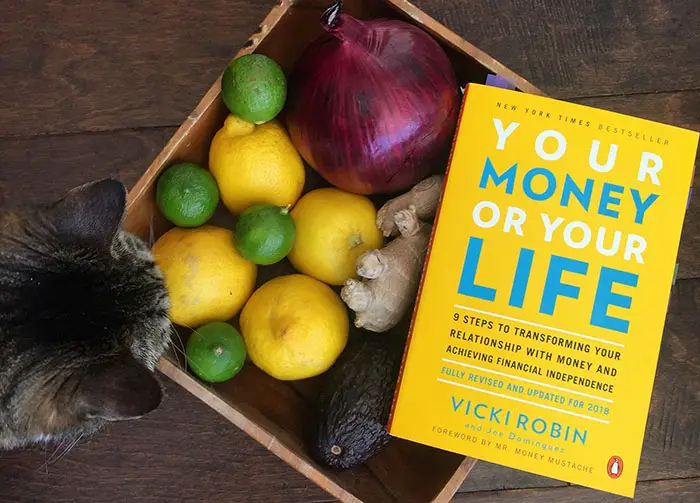
Image by Amazon
Your Money or Your Life offers a comprehensive approach to achieving financial independence by delving into the real cost of work, aligning spending with personal values, and making deliberate choices for a fulfilling and sustainable lifestyle.
This classic guide is designed to help you attain financial independence. It outlines a 9-step program that will help you analyze your finances, cut unnecessary spending, and boost your savings.
The author introduces the concept of ‘life energy’ to describe your time and encourages you to use it wisely.
Key Takeaways:
- Fundamentals of money management
- Strategies for paying off debt and increasing savings
- Principles of decluttering, frugal living, and avoiding consumerism pitfalls
- Ways to reclaim your time, gain perspective, and focus on what truly matters
Who Should Read This Book?
- Individuals new to finance who want to learn about building wealth and achieving financial independence.
2. The Simple Path To Wealth
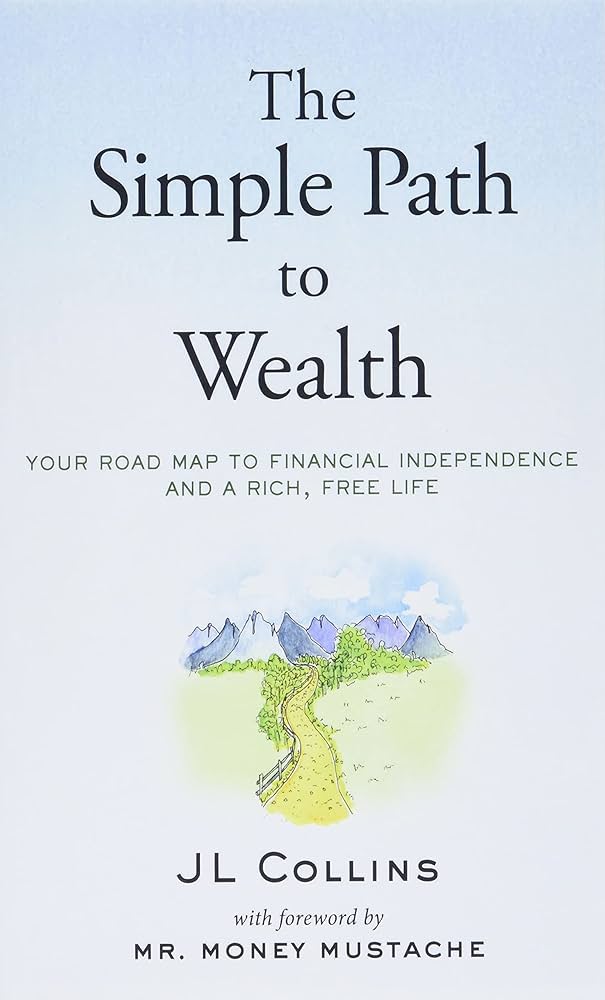
Image by Amazon
The Simple Path To Wealth is a great book to read for those interested in long-term investing and effective financial management, especially if you aim to retire early.
In this book, J.L. Collins offers valuable guidance on investing in low-cost index funds, practicing frugality, and building a path to financial independence.
A recurring principle throughout the book is:
“Spend less than you earn, invest the difference and try to avoid debt at all costs!”
Unlike many investing books, this one is straightforward, engaging, and provides clear instructions on what actions to take!
If you prefer a simple, effective approach to managing your finances without delving into high-risk strategies, this book is for you.
Additionally, numerous readers credit J.L. Collins with helping them achieve early retirement.
3. The Richest Man in Babylon
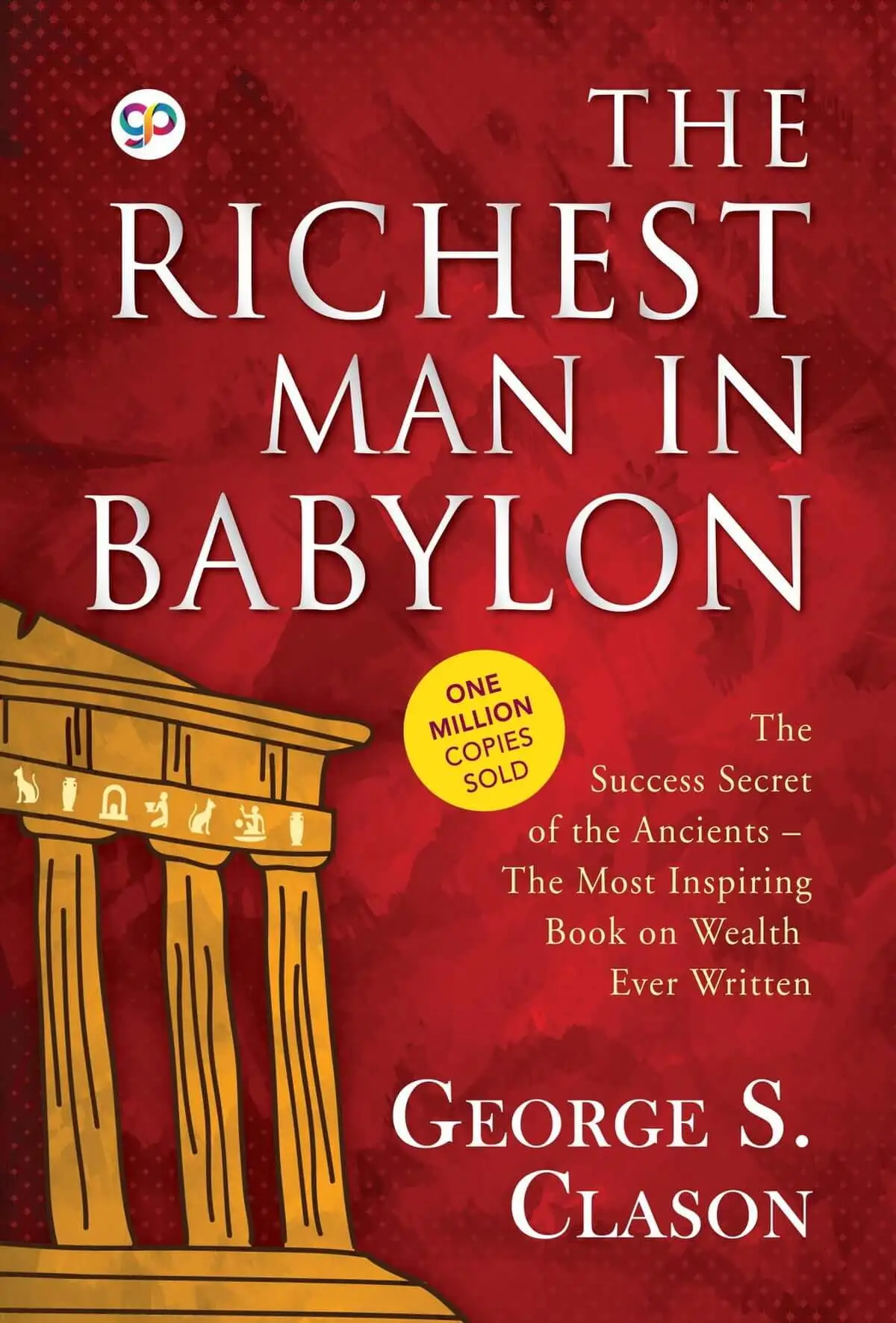
Image by Amazon
This book is a personal finance classic that I’ve read numerous times.
Every read offers new revelations and valuable insights on building enduring wealth.
First published in 1926, its lessons on financial wisdom are still relevant and impactful today.
Whether you’re a novice or a seasoned investor, the principles in this book will captivate you.
Some fundamental concepts from The Richest Man in Babylon include:
- Prioritize saving before spending
- Live within your means
- Plan for future income
- Boost your earning potential
This book conveys its financial wisdom through a series of timeless parables set in ancient Babylon, maintaining its status as a personal finance staple for nearly a century.
It’s essential reading if you’re committed to building wealth.
4. The Psychology of Money
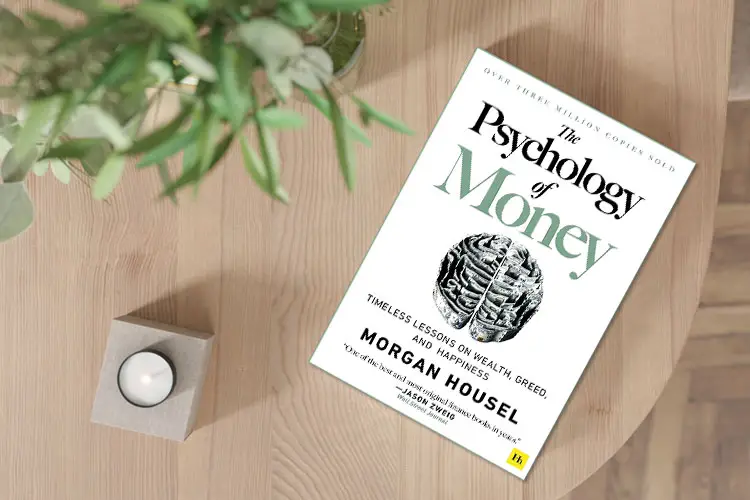
Image by Florida Weekly
If you’re interested in understanding the deeper aspects of financial behavior, this book is a must-read.
The Psychology of Money distinguishes itself from typical personal finance guides by focusing on the psychological factors influencing our financial decisions.
Rather than prescribing a one-size-fits-all approach to wealth, Morgan Housel explores how personal biases, behavioral flaws, and attitudes shape financial outcomes, showing how our mindset can be both an asset and a liability.
Whether you’re just starting your financial journey or looking to re-evaluate your approach later in life, this book offers valuable insights in an accessible format.
Key insights include:
- You’re not alone in your financial struggles—everyone has them
- Wealth is more about saving wisely than earning more
- It’s not just about acquiring money, but also about retaining it
- Expect setbacks and learn from them
5. The Millionaire Next Door
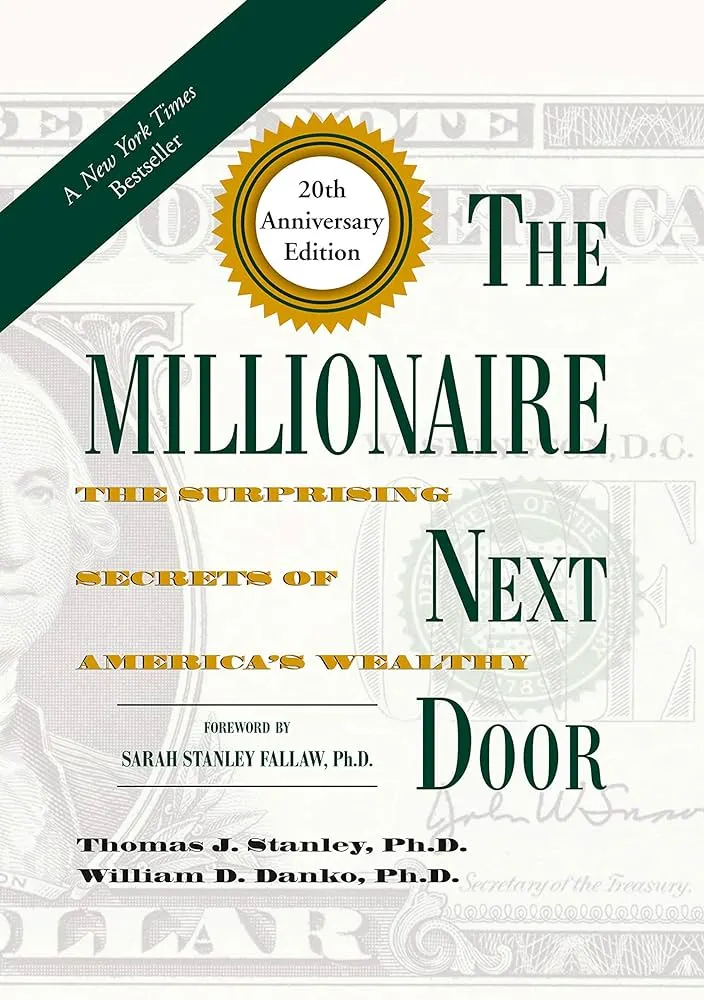
Image by Amazon
Curious about what it takes to join the ranks of millionaires? This book provides a revealing look.
In The Millionaire Next Door, the authors conducted interviews with numerous millionaires to uncover 7 key characteristics shared by those who successfully build wealth.
The book highlights that many millionaires live surprisingly modest lives, their unique approaches to managing time, and their parenting styles.
It’s an eye-opener that challenges the common notion of wealth and demonstrates how appearances can be deceiving—many who seem wealthy might actually be deeply in debt.
This book is a standout in financial literature because it illustrates that anyone, not just the stereotypical multi-millionaires with lavish lifestyles, can achieve retirement wealth.
Many millionaires adopt a frugal lifestyle, while those who seem wealthy and flashy may often be deep in debt.
Discover how the understated habits of these millionaires contribute to their financial success and why their modest appearances are key to their wealth.
6. Rich Dad Poor Dad
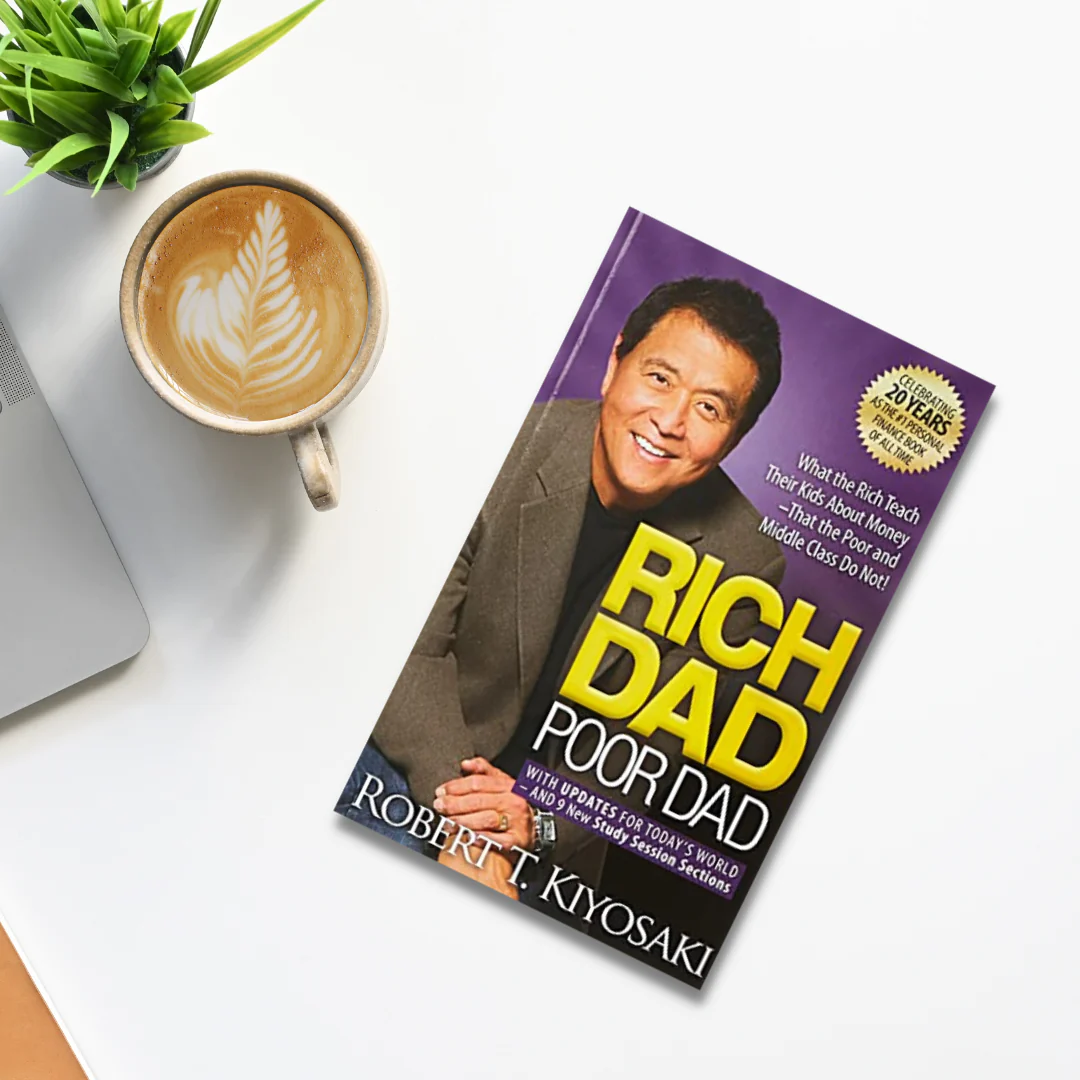
Image by Samad Naz on Medium.com
“An eighth-grade dropout who spends less than he earns is smarter than a college professor who can’t make ends meet” – Robert Kiyosaki
In Rich Dad Poor Dad, Robert Kiyosaki shares his experiences growing up with two contrasting father figures—his biological father and his best friend’s father.
These two men had very different attitudes toward money and life, offering Kiyosaki unique insights into wealth-building.
Through this book, you’ll discover which of these contrasting views Kiyosaki adopted and why it led him to financial success.
It’s an invaluable guide on managing finances, regardless of income level, and includes advice on teaching your children about money.
If there’s only one personal finance book you read this year, make it this one. It’s among the most impactful finance books I’ve encountered.
7. MONEY Master the Game
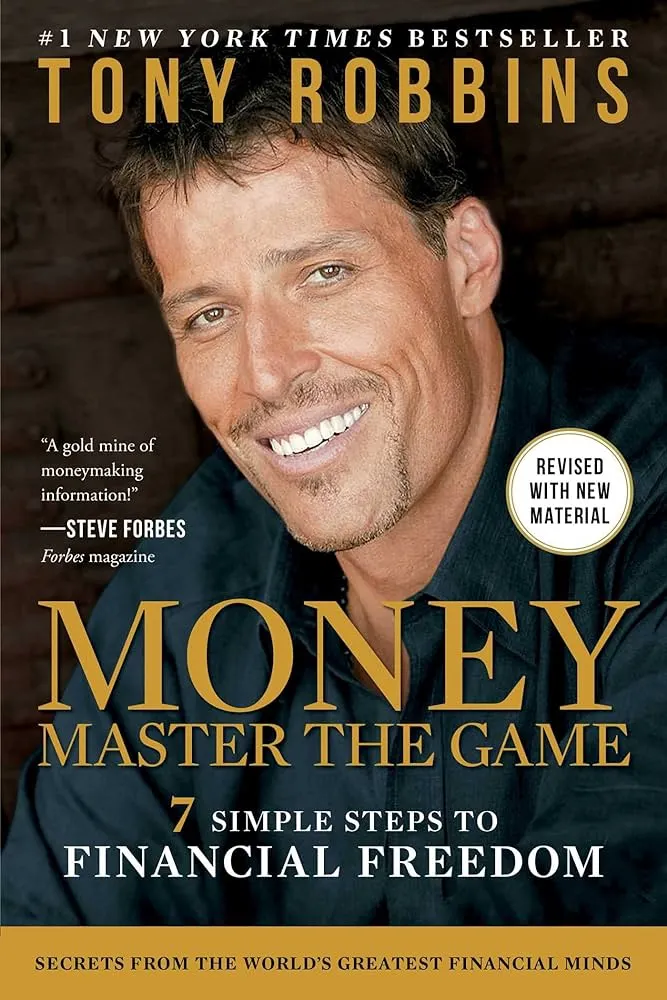
Image by Amazon
Oh, I have great admiration for Tony Robbins. His compelling writing and motivational style are always inspiring.
In Money Master the Game, Tony Robbins outlines his seven steps to achieving financial freedom. The book is filled with valuable insights and practical advice.
- Make The Most Important Financial Decision Of Your Life
- Become The Insider: Know The Rules Before You Get In The Game
- Make The Game Winnable
- Make The Most Important Investment Of Your Life
- Create A Lifetime Income Plan
- Invest Like The 0.001%
- Just Do It, Enjoy It And Share It
Robbins emphasizes the importance of cultivating the right mindset for investing.
Embracing discipline, maintaining patience, focusing on long-term objectives, and avoiding impulsive decisions are key to financial success.
“The secret to wealth is simple: Find a way to do more for others than anyone else does. Become more valuable. Do more. Give more. Be more. Serve more.” – Tony Robbins
8. The Total Money Makeover
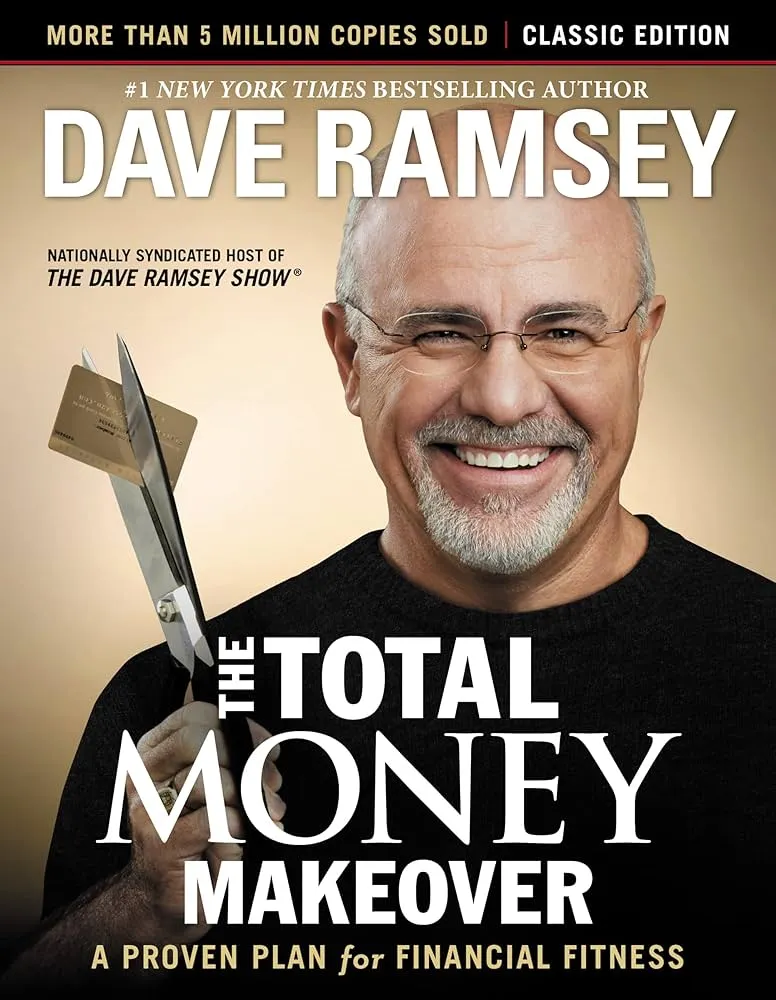
Image by Amazon
This list would be incomplete without mentioning The Total Money Makeover by one of the leading financial experts, Dave Ramsey.
This book is ideal for anyone struggling with debt and seeking a structured path to financial recovery. It’s designed for beginners, offering clear and actionable steps.
Dave Ramsey provides straightforward advice for eliminating debt and achieving financial stability. His initial step is to build a $1,000 emergency fund.
After that, he suggests focusing on debt repayment, starting with the smallest balances and progressing to larger ones.
Once you’re debt-free, Ramsey recommends expanding your emergency fund to cover 3 to 6 months of living expenses.
From there, you can concentrate on saving for goals like mortgage payoff, college funds, and retirement investments.
If you’re looking to improve your financial situation quickly, this book offers a practical roadmap to get started.
Now where can you start?
Don’t worry about tackling all these finance books at once.
Start by choosing 1-2 that seem most relevant to your current situation; select the one that will make the biggest immediate impact for you.
If you don’t have a budget in place, diving into a book about investing might not be the most effective approach.
Begin with what’s most pertinent to your current financial situation and then expand from there as needed.
Final Words
I hope you found this list of the top 8 money books useful.
Even if you only pick one book to read, it has the potential to make a significant improvement in your life—financially and beyond.
There’s no need for an advanced degree in economics or finance before diving into these books.
They are suitable for everyone, from college students to those who are new to financial planning.
What matters most is that you choose a book, read it, enjoy it, and feel more empowered as a result.
What do you think are the best finance books to read? Have you read any from this list and want to share your thoughts? Feel free to leave a comment below.

Leave a Reply